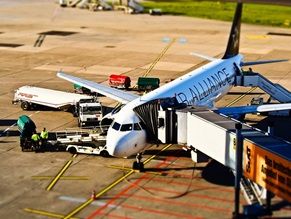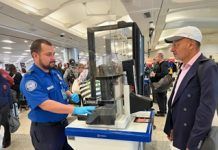A new report from the National Safe Skies Alliance (Safe Skies) highlights growing concerns about security rule compliance at U.S. airports. The report details how gaps in enforcement, inconsistent penalties, and inadequate training are leading to security vulnerabilities that airports must urgently address.
Safe Skies, a nonprofit dedicated to enhancing aviation security, found that while airports have security policies in place, many struggle with enforcement and adherence. The report identifies behavioral violations among badge holders, improper access control, and a lack of standardized penalties as key areas that require attention.
According to the report titled, “Optimizing Compliance with Airport Security Rules and Regulations,”, violations committed by airport workers have increased, ranging from minor infractions to serious security breaches. Safe Skies notes that some airports have begun implementing stricter measures to curb improper conduct.
For example, Charlotte/Douglas International Airport (CLT) has issued rules stating:
“CLT reserves the right to restrict access privileges and confiscate Badges of Badge holders who engage in inappropriate conduct, which includes but is not limited to using offensive or threatening language and/or gestures; refusing to cooperate with law enforcement, CLT staff, TSA, or other individuals charged with implementing the provisions of the ASP [airport security program]”.
Other airports, like San Francisco International Airport (SFO), have established similar policies prohibiting aggressive behavior, unauthorized access attempts, and failure to follow security procedures.
The report argues that airports must move beyond basic rule enforcement and instead create a culture of compliance—one where security is an ongoing priority rather than a set of static regulations. The study recommends that airports integrate compliance training, conduct regular security audits, and ensure that violations are met with appropriate penalties.
“Continuous improvement and innovative practices that incorporate ideas suggested by stakeholders can help ensure that the airport community not only meets current regulations but is also prepared for future changes,” the report states.
Another critical finding of the report is that many airports do not regularly update their security policies, leaving gaps in enforcement that criminals or bad actors could exploit.
In response, Safe Skies suggests that airports adopt a standardized review cycle for their security rules and regulations, ensuring they are updated every two years or after significant incidents.
They found that many airports are hesitant to enforce strict penalties, leading to repeat violations. The report urges stronger accountability measures for badge holders, airport employees, and contractors. One notable example comes from MWAA (Metropolitan Washington Airports Authority), which enforces company-wide penalties for security breaches. MWAA’s security policy states:
“The Airport Security Manager or designee may suspend or revoke the entity’s ability to request ID Badges for serious or repeated, inappropriate behavior, whether criminal or not, that significantly interferes with the efficient and orderly operation of Reagan National or Dulles International”.








